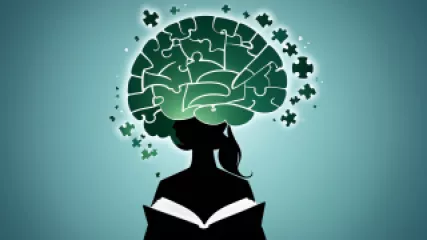Debunking the Top 5 Mental Health Myths
Debunking the Top 5 Mental Health Myths
Mental health is a topic that is often shrouded in misconceptions and misinformation. In this research summary, we aim to debunk the top 5 mental health myths that continue to perpetuate and hinder progress in addressing important issues around mental well-being. By shedding light on the facts, we hope to empower individuals to seek the support and resources they need without the burden of stigma or false beliefs.
Myth 1: Mental Health Issues Are a Sign of Weakness
One of the most pervasive myths surrounding mental health is the notion that struggling with mental health challenges is a sign of weakness or personal failure. This harmful belief often stems from a lack of understanding about the complex biological, psychological, and social factors that contribute to mental health disorders. In reality, mental health issues are common, treatable, and a normal part of the human experience. They do not reflect one's character, intelligence, or moral fortitude.
Research has shown that mental health disorders can affect individuals from all walks of life, regardless of their socioeconomic status, education level, or personal accomplishments. They are not a reflection of one's willpower or strength, but rather a medical condition that requires care and support, much like physical health concerns. Perpetuating the myth of mental health issues as a sign of weakness can deter individuals from seeking the help they need, further exacerbating the problem and contributing to the ongoing stigma surrounding mental health.
Myth 2: Mental Health and Mental Illness Are the Same Thing
Another common misconception is the conflation of mental health and mental illness. While the two are related, they are not synonymous. Mental health refers to an individual's overall psychological and emotional well-being, encompassing a spectrum of experiences, from optimal mental functioning to the presence of mental health disorders. Mental illness, on the other hand, is a diagnosable condition that can significantly impact an individual's ability to function in daily life.
It is important to recognize that everyone has mental health, just as everyone has physical health. Mental health can fluctuate throughout an individual's lifetime, and it is not uncommon for people to experience periods of both mental well-being and mental health challenges. Viewing mental health and mental illness as distinct but interrelated concepts can help foster a more nuanced understanding and reduce the stigma associated with mental health disorders.
Myth 3: Mental Health Issues Are Rare
Despite the widespread prevalence of mental health disorders, there is a persistent myth that they are rare or uncommon. In reality, mental health issues are remarkably common, affecting millions of individuals worldwide. According to the World Health Organization, mental health disorders account for a significant portion of the global burden of disease, with depression and anxiety being among the most prevalent conditions.
It is estimated that one in four people will experience a mental health issue at some point in their lives. This statistic highlights the importance of normalizing conversations about mental health and ensuring that individuals have access to the resources and support they need. Dispelling the myth of mental health issues as rare can encourage more people to seek help without fear of being perceived as an outlier or "different."
Myth 4: Mental Health Issues Are a Phase or Just a Phase
Another pervasive myth surrounding mental health is the belief that mental health issues are temporary or a phase that individuals can simply "snap out of" or overcome through sheer willpower. This misconception fails to recognize the chronic and often complex nature of many mental health disorders, which may require ongoing management and treatment.
While some mental health challenges may be episodic or time-limited, others can be more persistent and require long-term care and support. Dismissing mental health issues as a phase can invalidate the experiences of those struggling and discourage them from seeking the appropriate interventions. It is crucial to acknowledge the legitimate and often ongoing nature of mental health conditions to ensure that individuals receive the compassionate and comprehensive care they need.
Myth 5: Seeking Help for Mental Health Issues Is a Sign of Failure
One of the most damaging myths about mental health is the belief that seeking professional help, such as therapy or counseling, is a sign of personal failure or weakness. This misconception can be a significant barrier to individuals accessing the support they need, perpetuating the cycle of stigma and shame surrounding mental health issues.
In reality, seeking help for mental health concerns is a courageous and proactive step towards improving one's well-being. Mental health professionals, such as therapists, psychologists, and counselors, are trained to provide evidence-based interventions and support to individuals struggling with a wide range of mental health challenges. Engaging in therapy or utilizing mental health resources should be viewed as a sign of strength and self-care, not a mark of failure.
By debunking these common myths, we aim to foster a more informed and compassionate understanding of mental health. Mental health issues are not a reflection of one's character or worth, but rather a normal part of the human experience that deserves to be addressed with care, empathy, and access to appropriate resources.
As we continue to challenge these pervasive myths, we can work towards creating a society that prioritizes mental well-being, reduces stigma, and empowers individuals to seek the support they need without fear or judgment. Together, we can dispel the myths and promote a more holistic and inclusive approach to mental health.






